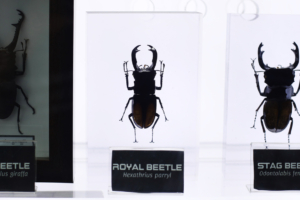20 Fun and Surprising Facts About Turtles

Turtles are fascinating creatures that have been around for millions of years. They can be found in almost every part of the world, and they come in a variety of shapes and sizes. These reptiles have many interesting facts that make them unique, from their slow movement on land to their long lifespans.
In this article, we will explore 20 fun and surprising facts about turtles.
Turtles have been around for over 200 million years
Turtles have been around since the time of the dinosaurs, and they have survived some of the earth’s most significant events, such as volcanic eruptions, climate change, and asteroid impacts.
Turtles can live a very long time
Turtles are one of the longest-living animals on the planet, with some species living for over 100 years.
There are over 300 species of turtles
Turtles come in a wide variety of sizes and colors, and they inhabit every continent except for Antarctica.
Turtles have a unique way of protecting themselves
Turtles use their shell as a protective barrier against predators, and they can withdraw their head, legs, and tail inside their shell when threatened.
Turtles have a very strong sense of smell
Turtles rely on their sense of smell to locate food, mates, and potential predators.
Some turtles can breathe through their cloaca
Some turtle species, such as the Fitzroy river turtle, can breathe through their cloaca, which is an opening that serves as both the exit for waste and the entrance for reproduction.
Turtles have a bony shell that is part of their skeleton
Turtles have a unique skeletal structure that includes a bony shell, which provides them with protection, support, and a place to attach their muscles.
Turtles have excellent eyesight and can see in color
Turtles have good eyesight and can distinguish colors, shapes, and movements in their environment.
Turtles are ectothermic
Turtles are ectothermic, meaning they rely on external sources to regulate their body temperature. Turtles regulate their body temperature by basking in the sun or moving to cooler areas.
Some turtle species are herbivores, while others are carnivores
Turtles have a diverse diet, with some species feeding on plants and others on insects, fish, and even other turtles.
Turtles are great swimmers
Most turtles are adapted for aquatic life and are skilled swimmers.
Sea turtles can hold their breath for several hours
Sea turtles can remain underwater for extended periods while they search for food, mate, or avoid predators.
Turtles can sleep underwater
Some turtle species can sleep underwater, but they must come to the surface periodically to breathe.
Some turtles can travel long distances
Some turtle species, such as the leatherback sea turtle, can travel vast distances across the ocean to find food or breeding grounds.
Turtles have been kept as pets for thousands of years
Turtles have been popular pets for centuries, and they are still a common household pet today.
Turtles have been used in traditional medicine for centuries
Turtles have been used in traditional Chinese medicine for over 2,000 years, where they are believed to have healing properties.
Turtles have a unique way of hearing
Turtles do not have external ears, but they can hear vibrations through their jawbone, which is connected to their inner ear.
Turtle eggs have temperature-dependent gender determination
The gender of turtle eggs is determined by the temperature of the nest during incubation.
Turtles are important to many cultures around the world
Turtles are significant in various cultures, symbolizing longevity, wisdom, and protection.
Turtles face many threats in the wild
Turtles are under threat due to habitat loss, pollution, hunting, and the pet trade. Many species are endangered, and conservation efforts are underway to protect them.
In conclusion, turtles are incredible creatures that have adapted to their environments in unique ways. From their long lifespans to their unusual methods of self-defense, turtles have many fascinating characteristics that make them stand out among other animals. However, many turtle species face threats in the wild, making conservation efforts crucial for their survival. By learning more about these amazing reptiles, we can better appreciate their importance and take steps to protect them for future generations.





